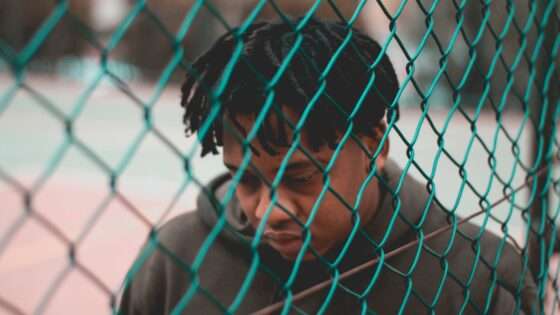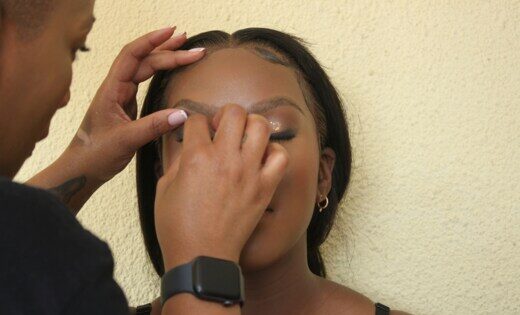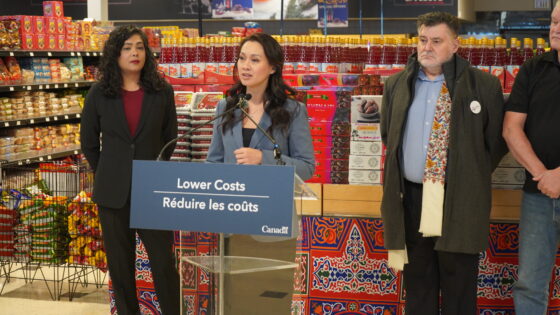on
BY LA SHAWNA GRIFFITH
Twenty-four-year-old Cyndi Celeste is a spoken-word artist from the beautiful island of Barbados. This international artiste holds a Bachelor of Arts with Honours in Linguistics and Communication Studies from The University of The West Indies, Cave Hill Campus.
This talented spoken-word artist decided to pay homage to her late mother by releasing her first EP entitled Cyndicated on her mother’s birthday September 8th, 2020.
She spoke to a Barbadian Reporter for the Toronto Caribbean Newspaper, and said her mother was the one who inspired her to record her spoken word and thus her EP Cyndicated was born.
“The first piece I recorded I only did it for fun at, but when I allowed her to hear it back in October or so last year she convinced me to get serious about actually releasing my work into the market not just performing at events. I did not know then that she would not be there to help me through the entire process. I decided to honour her by releasing it. That is why when I chose the release date, I chose her birthday because the project started because of her, and I felt like giving it to her. It is immortalized on her birthday and that makes it much more special to me.”
On top of her mother’s inspiration, Cyndi Celeste noted she was deeply inspired by her trip to Vrystaat Arts Festival in South Africa, which she attended in 2019. Celeste was one of four poets from Barbados who attended the festival. She explained that she was fascinated by how each poet had their own identity and practiced it unabashedly. Seeing the artistes’ freeness is what led to her creating Cyndicated so that she could step into her own identity.
Cyndi Celeste said her EP is about identity as she is an Afro-descendant Caribbean person learning how to navigate and negotiate her identity how she sees fit.
“The vibe of the project inevitably became an expression of black consciousness and that is perfectly fine since I wanted the EP to be about identification and representation. To complete this goal, I had to speak from my experience as a black person living in the Caribbean.”
Reflecting on the response she has received since the launch of her EP, she said that persons have come to her while traversing the island of Barbados and said that they enjoyed her work. For the poet, her favourite pieces on the eight-track album dubbed Cyndicated are Badu and Say My Name.
“I have two favorites: Badu of course because that piece is what started this entire journey and it also marks a time of transition for me as a performer. In writing the piece I was intentional with the language and flow of it, so there was a tangible development that happened, and I could tell that my creative process had become more refined. My other favourite is Say My Name. The whole project was about stepping into my identity and a huge part of my identity was naming. For a long time, I struggled to figure out what my stage name would be and just used my first and last name. Say My Name was the moment I stepped into a stage name that has always been in front of me-Cyndi Celeste the two names that my mother gave to me.”
Cyndi as she is affectionately called, explained how the EP was produced noting that everyone who played a role in the production Is a part of her personal life, thus making the album have a further sentimental value.
“Producing the project was a ride. I call this a family project because it was made by a small group of people whom I considered to be family. I would also say that I am proof that you do not need a lot of fancy equipment to execute something like this. I started this project recording vocals on a Samsung headset and then approached some of my creative network for help.
My partner Jamar Skeete created most of the musical accompaniment, Andre Daniel, a producer who was a friend of my late mother, allowed me to use his home studio to re-record high-quality vocals. Everyone involved in production and marketing is a part of this project to me, so I had a great time creating, learning, and planning it all out.”
Cyndi Celeste recently performed at the UN 75 Concert, which featured a virtual performance from Grammy Nominated Super Star Rihanna. The concert sought to bring upliftment to the world as it battles COVID-19. Cyndi Celeste was the lone female poet in the lineup at the show which was streamed on multiple social media sites across the world. Reflecting on her experience she said,
“I am still reeling a bit. I tweeted after the show, ‘Guys I am crying I just shared a virtual stage with Rihanna’. When I got the call, the conversation was only about what the performance would be for and the types of messages the UN accepts. I had no idea who else was going to be in the lineup.
The first time I saw the lineup was when the producers sent me the promotional flyer. To see the flyer and realize that I was the lone female poet in the lineup, and the rest of the performances were from musicians and dancers with super powerful performances, in the show, which featured performers from the entire region, was heartwarming.”
The other poet was Barbadian poet Aja who is known as one of the pioneers for rhythm poetry in Barbados. “Right before the show, I felt my imposter syndrome creeping in but luckily all of my friends and family were supporting me and happily sharing my performance on social media.”
Her album Cyndicated is available on Spotify, Itunes, Apple Music, Amazon, Deezer, and Pandora. Follow her journeys on social media through her:
Facebook: Cyndi Celeste Poetry
IG: @cyndi.celeste
Twitter:@cyndi_celeste
Stay in the loop with exclusive news, stories, and insights—delivered straight to your inbox. No fluff, just real content that matters. Sign up today!













